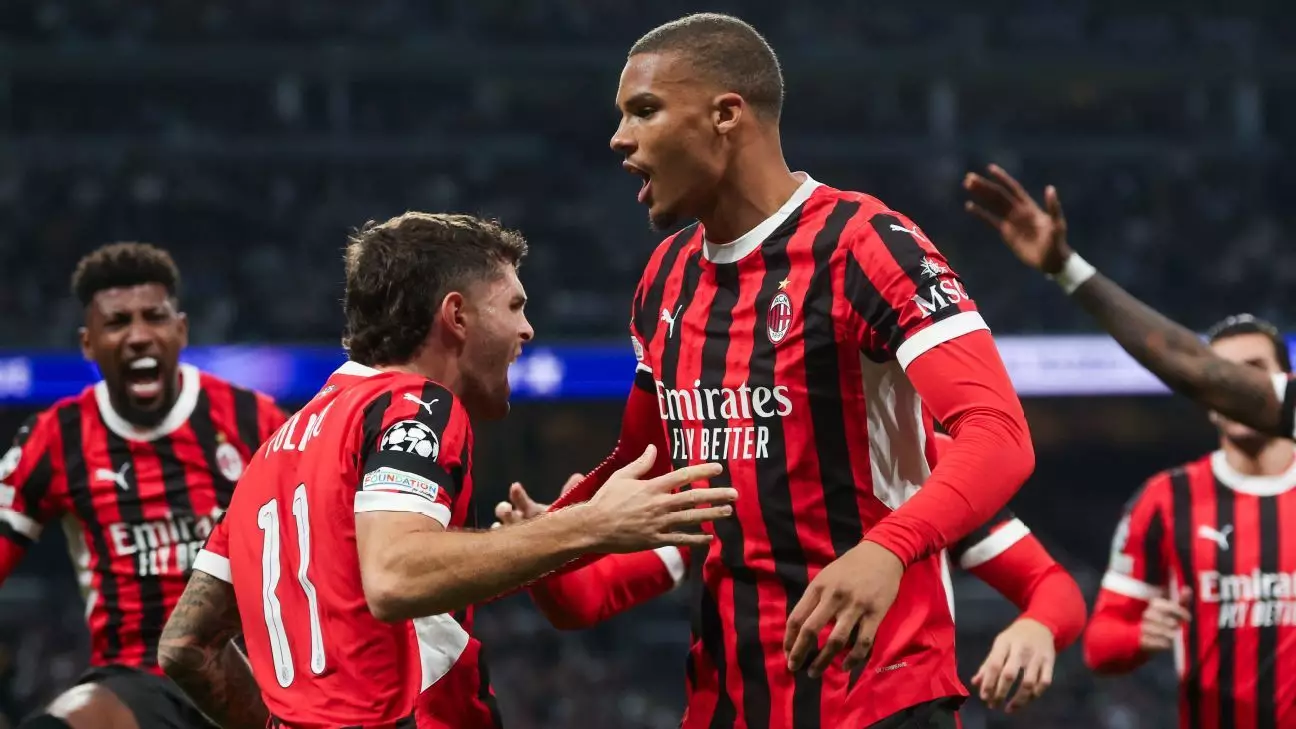In a stunning display of skill and resilience, AC Milan emerged victorious against reigning Champions League champions Real Madrid with a decisive 3-1 win at the iconic Santiago Bernabéu. This remarkable performance not only marks a significant victory for the Italian side but also showcases the evolution of Milan into a formidable competitor on the European stage. With Christian Pulisic playing a pivotal role, the match was a blend of strategic execution and individual brilliance.
The match kicked off with a dynamic start. Pulisic’s early corner set the tone, allowing Malick Thiaw to head in the opening goal mere minutes into the match. This early lead bolstered the confidence of the Milan squad and laid the foundation for their assertive approach throughout the game. Pulisic’s involvement didn’t stop there; he continued to demonstrate his playmaking abilities, crucially contributing to Milan’s offensive setup.
Since joining AC Milan, Pulisic has established himself as a key figure in the squad. His performance against Real Madrid further cements his status as an essential player. In an interview post-match, Pulisic expressed his elation, highlighting the historical significance of the win. “Coming here and playing is incredibly challenging given their legacy, so this win feels really special,” he noted. Such statements reflect not only Pulisic’s appreciation of the moment but also a growing confidence in his abilities to perform at the highest level.
Pulisic’s contribution went beyond the initial assist for the first goal. His vision was evident when he fed the ball into the box for Rafael Leão, whose attempt at scoring was momentarily halted by Madrid’s goalkeeper, Andriy Lunin. This sequence culminated in Álvaro Morata scoring the rebound, showcasing a collective offensive effort that left the home team reeling. Morata, with his history at Madrid, embraced the spotlight despite the home crowd’s palpable disdain, reiterating the narrative of redemption for former players excelling against their old clubs.
While the attack was a focal point of AC Milan’s strategy, their defense also exhibited commendable tenacity, particularly in challenging moments. Vinícius Júnior’s equalizer from the penalty spot demonstrated Madrid’s capacity to respond under pressure, but Milan’s composure in reclaiming the lead was crucial. Head coach Paulo Fonseca acknowledged this balance: “We played the game we wanted,” he remarked, signaling the importance of both tactical preparation and mental fortitude.
Milan’s third goal, struck by Tijjani Reijnders, signified not just a padlock on the scoreline but a statement of intent. The Santiago Bernabéu, known for its electrifying atmosphere, turned hostile as frustration simmered among the home fans. This quintessential moment highlighted the essence of top-level football, where early momentum can pivot into a stronghold of confidence, enabling the underdog to thrive in pressure-filled environments.
Despite this glorious victory, Milan’s season in Serie A has been a rocky road, currently placing seventh before a key match against Cagliari. The juxtaposition of Champions League success and domestic challenges posed critical reflections for the squad. Pulisic’s words—“If we don’t win that one, then this doesn’t mean anything”—are a stark reminder that while European victories earn acclaim, sustained success in the domestic league is equally vital for Milan’s aspirations.
As AC Milan revels in the aftermath of this significant triumph, the team must focus on consistency and the ability to replicate such performances moving forward. With Pulisic at the forefront, the club has shown promise that it can raise its ambitions in both European and Italian football. The narrative of Milan is evolving, potentially heralding a more competitive era reminiscent of its historical dominance in the sport. As they stride forward, there’s no doubt that the blend of youthful dynamism and seasoned experience is crucial in pursuing future successes.

